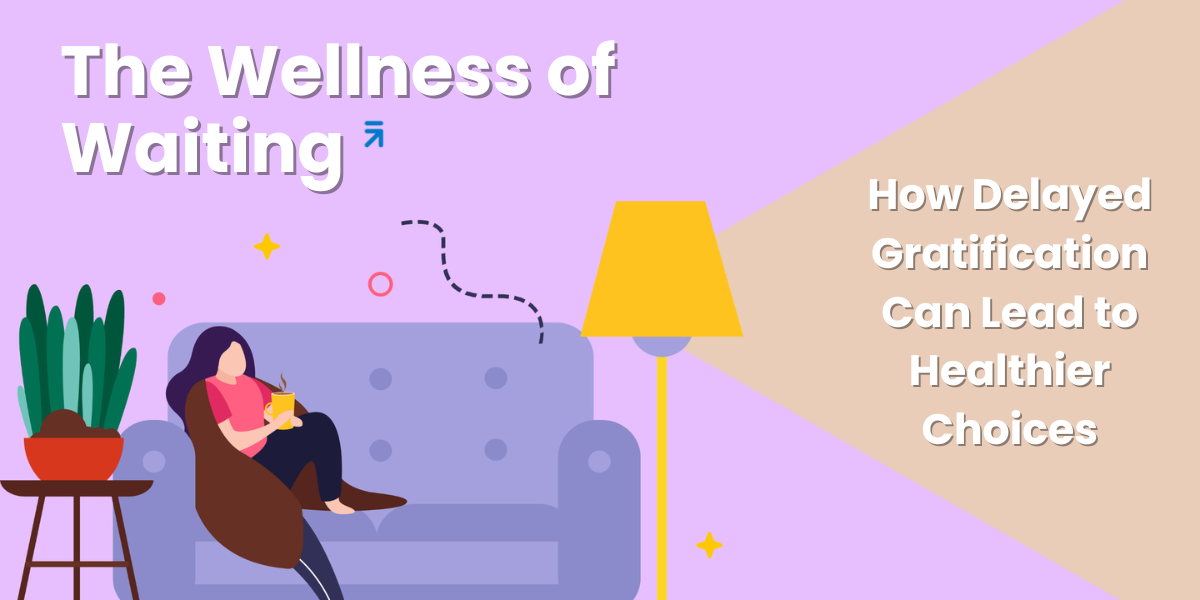In a world brimming with mouthwatering treats, delectable indulgences, and fast-food temptations at every turn, maintaining a healthy eating routine can sometimes feel like an uphill battle. Whether it's the aroma of freshly baked cookies wafting through the air or the allure of a greasy burger on a billboard, the path to staying committed to our dietary goals can be strewn with obstacles that test our willpower.
Fortunately, there are practical strategies, psychological insights, and expert tips to empower you with the tools necessary to triumph over the tempting calls of unhealthy food choices.
So, if you're ready to embark on a transformative journey towards maintaining your healthy eating habits, join us as we navigate the treacherous waters of temptation and discover powerful strategies to stay on track. Remember, it's not just about what's on your plate, but also the mindset and strategies you bring to the table that will lead you to success.
Why Is It Important to Maintain Healthy Eating Habits?

Maintaining healthy eating habits is crucial for overall well-being. Our diet plays a vital role in providing the necessary nutrients to our bodies, which are essential for optimal physical and mental health.
Healthy eating habits contribute to our overall well-being in several ways. Firstly, it helps to maintain a healthy weight, which is important for preventing various chronic diseases such as heart disease, diabetes, and certain types of cancer. Secondly, a balanced diet provides our bodies with the necessary energy to carry out daily activities and promotes good digestive health.
In addition to physical health, healthy eating habits have a significant impact on our mental well-being. Research has shown that certain nutrients, such as omega-3 fatty acids found in fish, can enhance brain function and improve mood. A balanced diet rich in fruits, vegetables, whole grains, and lean proteins has been linked to a lower risk of developing mental health conditions like depression and anxiety.
On the other hand, unhealthy eating habits can have detrimental effects on both physical and mental health. Diets high in processed foods, sugar, and unhealthy fats can lead to weight gain and increase the risk of chronic diseases. Furthermore, a poor diet lacking in essential nutrients can affect brain function, memory, and cognitive abilities.
What Are Food Temptations?

Food temptations are those irresistible cravings and desires for certain types of food that can be difficult to resist. These temptations are often triggered by various factors such as hunger, emotions, or even external cues like seeing or smelling delicious food. They can range from sweet and sugary treats to savory and salty snacks and can have a powerful hold on our thoughts and actions when it comes to our food choices.
Whether it's a sudden craving for a chocolate bar or the persistent desire for a slice of pizza, food temptations can significantly impact our ability to maintain a healthy and balanced diet. Understanding what food temptations are and how they influence our eating behaviors is an essential step towards developing strategies to manage them effectively and make healthier choices.
What Are the Common Triggers of Food Temptations?
Food temptations can arise from a variety of triggers, including specific foods, situations, emotions, and times of the day. Understanding these triggers is crucial in managing and overcoming cravings.
Specific foods are often associated with triggering cravings. For example, salty snacks like chips or pretzels can lead to cravings for more snack foods. Similarly, sugary desserts like chocolate or ice cream can create a strong desire for indulgent treats.
Situations can also play a role in prompting food temptations. Social gatherings, parties, or even just being in close proximity to food advertisements can trigger cravings for unhealthy or high-calorie foods. The sight and smell of food can be powerful stimuli for the brain, prompting thoughts and desires for eating.
Emotions can have a significant impact on food cravings. Stress, boredom, sadness, or even happiness can lead to an urge to eat certain foods as a way to cope or reward oneself. Emotional eating can become a habit, where certain emotions consistently trigger cravings for specific foods.
Furthermore, different times of the day can contribute to food temptations. For instance, late-night snacking can be a common trigger for cravings, as it is often associated with relaxation and indulgence. Additionally, specific meal times, such as breakfast or lunch, can lead to cravings for certain foods that are traditionally associated with those meals.
How to Identify What Triggers Your Food Temptations?
To identify what triggers your food temptations, one effective method is to keep a food journal. This involves tracking your eating habits, cravings, and emotions surrounding food. By documenting these details, you can start to recognize patterns and specific triggers that lead to cravings.
The process starts by writing down everything you eat and drink throughout the day, including portion sizes. It's important to be honest and accurate. Additionally, note the time of your meals and any snacks. Alongside the food, record your emotions and any external factors that may have influenced your eating choices. This could include stress, boredom, social situations, or even seeing food advertisements.
After a few days or weeks of maintaining the food journal, review the entries and look for commonalities. You might notice that you tend to crave sweets in the afternoon when you are feeling tired. Or perhaps you find yourself reaching for unhealthy snacks while watching TV in the evening.
Understanding these triggers is crucial because it allows you to develop effective strategies for avoidance or management. For example, if you identify stress as a trigger, you can explore alternative stress-relieving activities like exercise or meditation. If you notice that seeing junk food commercials on TV leads to cravings, you could try switching to a different channel or avoiding TV altogether during peak advertising times.
Some common examples of triggers could be specific foods (such as chocolate or chips), situations (like parties or celebrations), emotions (such as sadness or anxiety), or even certain times of the day (like late-night snacking).
5 Tips to Help You Stick to Your Healthy Eating Habits

Maintaining healthy eating habits can be a challenging task, with temptations and distractions lurking around every corner. However, with the right strategies in place, it is possible to stay on track and cultivate a sustainable and nourishing relationship with food. So, check out these five invaluable tips and discover how they can empower you to achieve your wellness goals.
-
Consult a Professional
Consulting a professional when adopting a healthy diet is crucial for several reasons. Firstly, a professional, such as a registered dietitian, has the knowledge and expertise to provide tailored guidance and support. They can assess an individual's specific needs and health goals, taking into account factors like age, gender, activity level, and any existing medical conditions.
A registered dietitian can offer personalized meal plans that are balanced and suit the individual's nutrient needs. They can provide information on portion sizes, food groups to focus on, and advise on incorporating a variety of foods for optimal nutrition. Furthermore, they can ensure that any dietary changes are safe and appropriate for specific conditions, such as diabetes, heart disease, or food allergies.
Additionally, a registered dietitian can also address any concerns or questions regarding nutrition and offer evidence-based information. They can debunk misconceptions and myths about food and help individuals make informed choices. This guidance is especially important to prevent individuals from falling into fad diets or extreme eating patterns that may harm their health.
Lastly, a behavior change specialist plays a vital role in breaking old habits and forming new ones. Changing one's dietary habits requires not only knowledge but also support to overcome obstacles and sustain long-term changes. A behavior change specialist can provide strategies, motivation, and accountability to help individuals adopt and maintain healthier eating habits.
-
Avoid an All-Or-Nothing Approach
When it comes to improving diets, avoiding an all-or-nothing approach is crucial. An all-or-nothing mindset, also known as black and white thinking, can have negative consequences on our food choices and overall progress.
The problem with an all-or-nothing mindset is that it sets rigid rules and expectations. When we think in terms of "good" and "bad" foods, we can easily fall into the trap of labeling ourselves as failures if we indulge in something that is considered "bad." This can lead to feelings of guilt and shame, which can have a detrimental impact on our self-esteem and motivation.
Furthermore, an all-or-nothing mindset often leads to unhealthy food choices. When we believe that we have already "ruined" our diet by consuming one unhealthy food, we may feel compelled to continue on a downward spiral of poor choices. This can result in overindulgence and setbacks, ultimately discouraging and demotivating us from making positive changes.
To adopt a more balanced approach, it is essential to view each food choice as its own entity, rather than categorizing foods into "good" or "bad" groups. This allows us to make conscious decisions based on our individual needs and preferences. Practicing self-compassion is also crucial. Instead of beating ourselves up for making choices that don't align perfectly with our goals, we should acknowledge that progress takes time and that every healthy choice we make is a step in the right direction.
-
Get Enough Sleep
Getting enough sleep is crucial for weight-loss efforts as it has a direct correlation with our body's ability to manage weight. Lack of sleep can actually lead to weight gain and hinder our weight-loss goals.
When we don't get enough sleep, it disrupts the balance of hormones in our body that regulate appetite and hunger. This can cause us to have increased cravings for unhealthy and high-calorie foods, leading to overeating. Additionally, lack of sleep can negatively impact our metabolism, making it harder for our body to burn calories efficiently.
To ensure we are getting enough sleep, it is recommended to establish a consistent sleep routine. This includes going to bed and waking up at the same time every day, even on weekends. By having consistent bedtimes, our body will become accustomed to a regular sleep schedule, which will help us fall asleep faster and wake up feeling more refreshed.
Creating a comfortable sleep environment is also important. This includes ensuring our bedroom is cool, quiet, and dark. Using earplugs, eye masks, or white noise machines can be helpful in creating a peaceful and uninterrupted sleep environment.
Limiting screen time before bed is another crucial step in getting enough sleep. The blue light emitted by electronic devices like smartphones, tablets, and televisions can interfere with our body's natural sleep-wake cycle, making it more difficult to fall asleep. It is recommended to avoid using screens for at least an hour before bed and instead engage in relaxing activities like reading or taking a warm bath.
-
Avoid “Emotional” Eating
Emotional eating refers to the tendency to consume food in response to emotional triggers rather than physical hunger. This coping mechanism can have negative consequences for one's diet and overall well-being.
When individuals engage in emotional eating, they often turn to comfort foods that are high in fat, sugar, and calories. These foods may provide temporary relief from negative emotions, such as stress or sadness, but their consumption can quickly lead to weight gain and a poor nutritional balance in the long run. Moreover, emotional eating does not address the underlying causes of emotional distress, resulting in a vicious cycle of relying on food for solace.
To break the habit of emotional eating, several strategies can be adopted. Firstly, it is important to identify and understand the emotions that trigger the desire to eat. By recognizing these emotional patterns, individuals can learn to address their feelings directly rather than seeking comfort in food. Secondly, finding alternative coping mechanisms, such as engaging in physical activities like taking a walk or practicing relaxation techniques, can help divert attention away from emotional eating. Finally, seeking support from a friend or a therapist can offer a valuable outlet for discussing emotions and developing healthier ways to cope with stressors.
-
Eat Foods You Love
When it comes to maintaining a healthy diet, it is essential to understand the importance of incorporating foods you love. Many people believe that to be healthy, they must cut out their favorite foods, but this mindset can backfire in the long run. Depriving yourself of the foods you love can lead to feelings of restriction and deprivation, making it harder to stick to a healthy eating plan.
Instead of completely eliminating your favorite foods, it is recommended to practice moderation and portion control. By allowing yourself to enjoy the foods you love in smaller, controlled quantities, you can still maintain a balanced diet without feeling deprived. This approach not only satisfies your cravings but also helps you stay on track with your health goals.
Moreover, incorporating foods you love into a healthy diet can also have positive psychological effects. Eating the foods you enjoy brings pleasure and can improve your overall well-being. Depriving yourself of these foods may lead to feelings of frustration and can even trigger binge-eating episodes.
The key is to find a balance. Rather than completely excluding your favorite foods, strive for moderation. Enjoy them in reasonable portions while focusing on overall nutrient-dense foods. By doing so, you can create a sustainable and enjoyable eating plan that contributes to long-term health and happiness. Remember, it's not about restriction; it's about making choices that align with your goals and incorporating foods you love into a healthy lifestyle.
Takeaway
In a world filled with tempting food choices, sticking to healthy eating habits can feel like an uphill battle. However, it's crucial for overall well-being, as a balanced diet supports physical and mental health. To overcome food temptations, understanding triggers like specific foods, situations, emotions, and times of day is key. Keeping a food journal helps identify these triggers, enabling the development of effective strategies to manage cravings. Seeking professional guidance, avoiding extremes, prioritizing sleep, addressing emotional eating, and enjoying favorite foods in moderation are essential for maintaining a sustainable and nourishing relationship with food.
Maintaining healthy eating habits requires self-awareness and practical strategies. By recognizing triggers, seeking professional support, and adopting a balanced approach, individuals can navigate temptations and cultivate a healthier lifestyle. Success lies in mindful choices and the implementation of strategies to stay on track with dietary goals.
Renpho Health Tips
-

Serenity in a Cup: A Soothing Journey Through Herbal Tea Traditions
April 21, 2024
Read more >
-

The Path to Wellness: 5 Tips for Developing Healthy Eating Habits
April 18, 2024
Read more >
-

The Wellness of Waiting: How Delayed Gratification Can Lead to Healthier Choices
April 15, 2024
Read more >
-

Weighing In on Waste: How Food Scales Can Help Reduce Food Waste
April 12, 2024
Read more >
-

Satisfying Every Palate: How to Cater to Specialized Dietary Requirements
April 4, 2024
Read more >




































